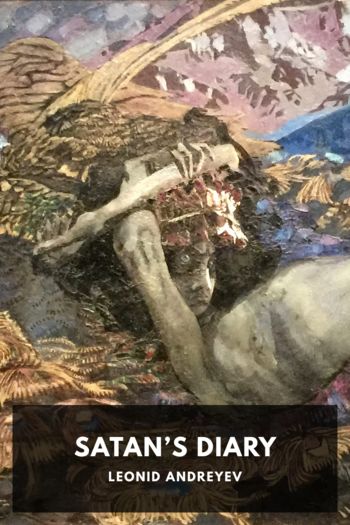Short Fiction - M. R. James (mobile ebook reader .txt) 📗

- Author: M. R. James
Book online «Short Fiction - M. R. James (mobile ebook reader .txt) 📗». Author M. R. James
As we neared it, Henry Long felt, and I felt too, that there were what I can only call dim presences waiting for us, as well as a far more actual one attending us. Of Paxton’s agitation all this time I can give you no adequate picture: he breathed like a hunted beast, and we could not either of us look at his face. How he would manage when we got to the very place we had not troubled to think: he had seemed so sure that that would not be difficult. Nor was it. I never saw anything like the dash with which he flung himself at a particular spot in the side of the mound, and tore at it, so that in a very few minutes the greater part of his body was out of sight. We stood holding the coat and that bundle of handkerchiefs, and looking, very fearfully, I must admit, about us. There was nothing to be seen: a line of dark firs behind us made one skyline, more trees and the church tower half a mile off on the right, cottages and a windmill on the horizon on the left, calm sea dead in front, faint barking of a dog at a cottage on a gleaming dyke between us and it: full moon making that path we know across the sea: the eternal whisper of the Scotch firs just above us and of the sea in front. Yet, in all this quiet, an acute, an acrid consciousness of a restrained hostility very near us, like a dog on a leash that might be let go at any moment.
Paxton pulled himself out of the hole, and stretched a hand back to us. “Give it to me,” he whispered, “unwrapped.” We pulled off the handkerchiefs, and he took the crown. The moonlight just fell on it as he snatched it. We had not ourselves touched that bit of metal, and I have thought since that it was just as well. In another moment Paxton was out of the hole again and busy shovelling back the soil with hands that were already bleeding. He would have none of our help, though. It was much the longest part of the job to get the place to look undisturbed: yet—I don’t know how—he made a wonderful success of it. At last he was satisfied, and we turned back.
We were a couple of hundred yards from the hill when Long suddenly said to him: “I say, you’ve left your coat there. That won’t do. See?” And I certainly did see it—the long dark overcoat lying where the tunnel had been. Paxton had not stopped, however: he only shook his head, and held up the coat on his arm. And when we joined him, he said, without any excitement, but as if nothing mattered any more: “That wasn’t my coat.” And, indeed, when we looked back again, that dark thing was not to be seen.
Well, we got out on to the road, and came rapidly back that way. It was well before twelve when we got in, trying to put a good face on it, and saying—Long and I—what a lovely night it was for a walk. The boots was on the lookout for us, and we made remarks like that for his edification as we entered the hotel. He gave another look up and down the seafront before he locked the front door, and said: “You didn’t meet many people about, I s’pose, sir?” “No, indeed, not a soul,” I said; at which I remember Paxton looked oddly at me. “Only I thought I see someone turn up the station road after you gentlemen,” said the boots. “Still, you was three together, and I don’t suppose he meant mischief.” I didn’t know what to say; Long merely said “Good night,” and we went off upstairs, promising to turn out all lights, and to go to bed in a few minutes.
Back in our room, we did our very best to make Paxton take a cheerful view. “There’s the crown safe back,” we said, “very likely you’d have done better not to touch it” (and he heavily assented to that), “but no real harm has been done, and we shall never give this away to anyone who would be so mad as to go near it. Besides, don’t you feel better yourself? I don’t mind confessing,” I said, “that on the way there I was very much inclined to take your view about—well, about being followed; but going back, it wasn’t at all the same thing, was it?” No, it wouldn’t do: “You’ve nothing to trouble yourselves about,” he said, “but I’m not forgiven. I’ve got to pay for that miserable sacrilege still. I know what you are going to say. The Church might help. Yes, but it’s the body that has to suffer. It’s true I’m not feeling that he’s waiting outside for me just now. But—” Then he stopped. Then he turned to thanking us, and we put him off as soon as we could. And naturally we pressed him to use our sitting-room next day, and said we should be glad to go out with him. Or did he play golf, perhaps? Yes, he did, but he didn’t think he should care about that tomorrow. Well, we recommended him to get up late and sit in our room in the morning while we were playing, and we would have a





Comments (0)